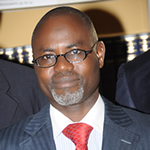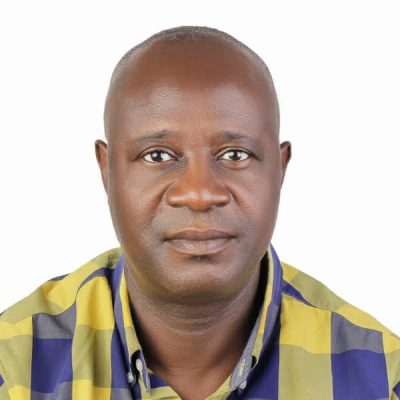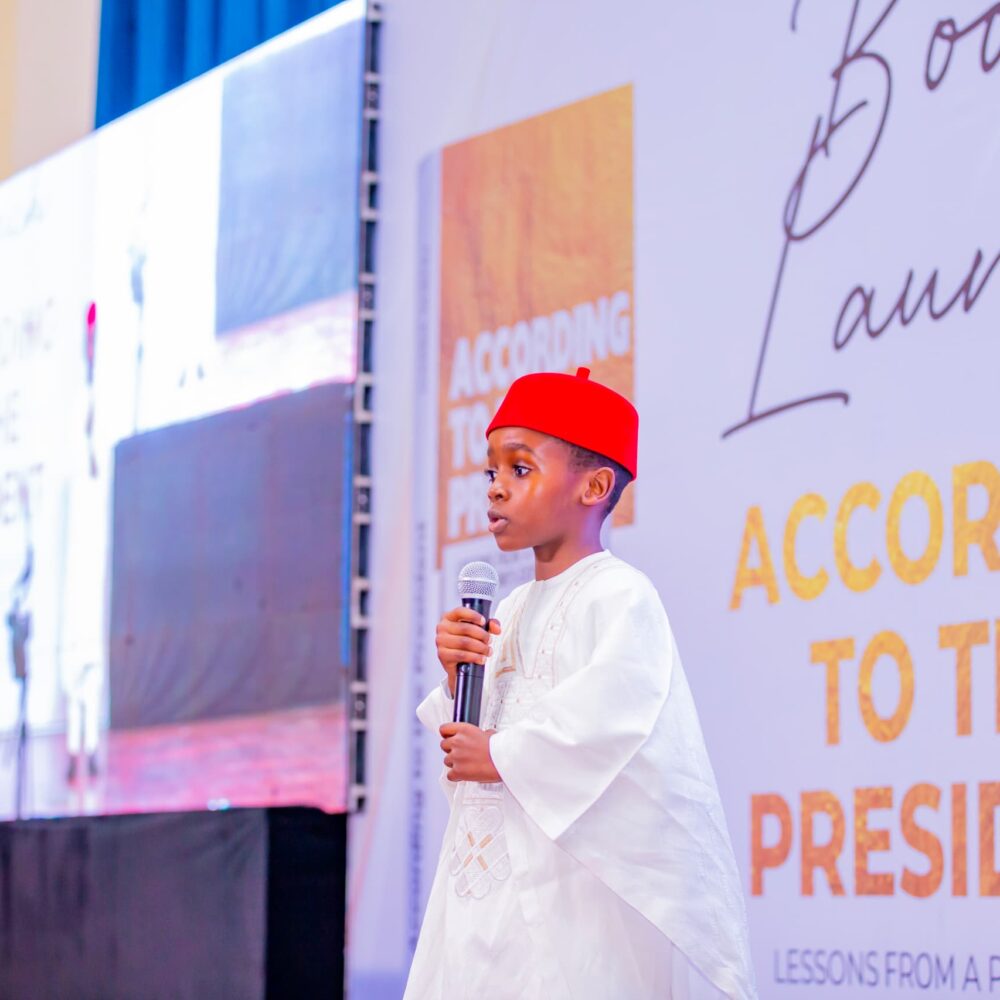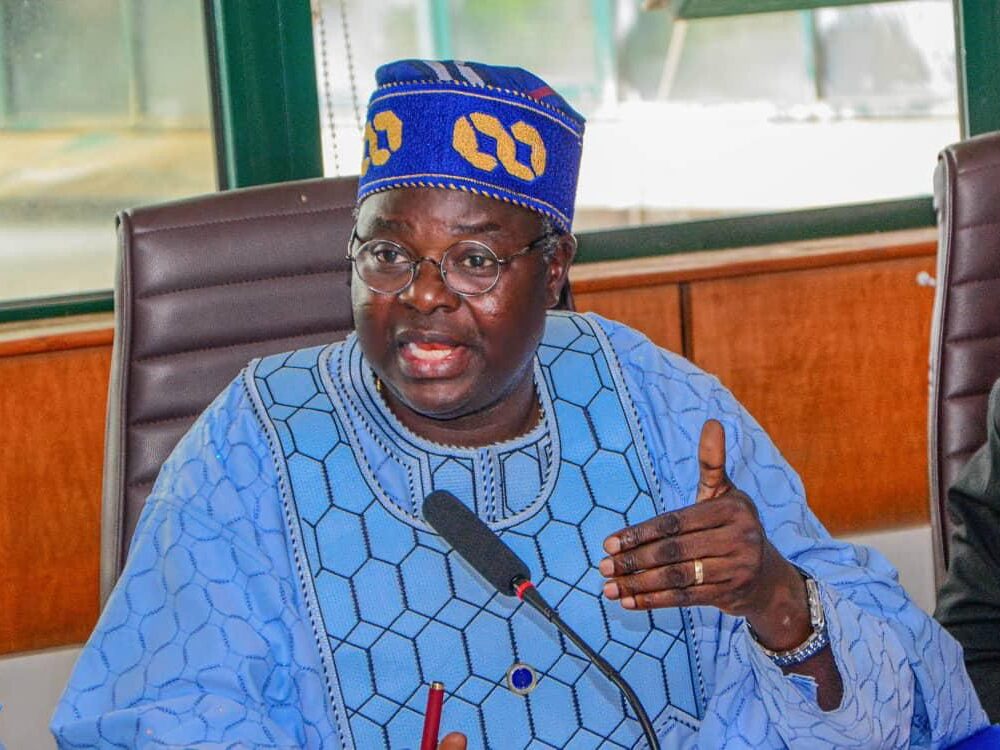INTRODUCTION
This title assumes that there exists cross-currents and that the cross-currents have issues and thus the need to re-visit them. While the assumption has its value based on the interwoven nature of the concepts, governmental powers, as it concerns justice is regarded as the basis and goal of law and politics which is the vehicle on which governance drives.
For instance, laws are made, executed and interpreted through the political process and politics are undertaken through the constraints of the law.
The relationship between law and religion can equally not be over emphasised because religion is seen as the conveyor of the divine mission on earth. It is an emotive issue on which a large percentage of Nigerians survive, which issue has been manipulated over time and practically abused for selfish and egoistic reasons. It has virtually become an albatross for the Nigerian project.
What then is the matrix of the relationship between these concepts in general terms and what is their relationship in Nigeria? These are some of the issues this presentation seeks to interrogate and investigate.
We however need to know the geographical expression or project called Nigeria before we proceed to discuss the inter-woveness of the various concepts and how they cross each others’ path. This exercise is embarked upon with a view to understanding the environment in which these concepts operates as well as identifying in practical terms the effect of their cross-currents in determining the making and sustenance of the project.
Nigeria as an entity would be safely assumed to have birthed at the amalgamation of the Northern and Southern Protectorates of the country by Sir Lord Fredrick Lugard in 1914.
Oloyede, in his opinion, reiterated the fact that the actions of the British were parochial and self serving. Following years of British rule and administration, Nigeria gained her independence in 1960. It became a Republic in 1963. Prior to the above scenarios, history has it that Islamic traders via the Sahara had made contact with the North.
With the advent of the British emanating from the South, the implication was simple; Christianity held sway in the South and Islam in the North although, this is not as straight jacketed as it was projected by the colonial enthusiasts. Oloyede argued further that right from independence of Nigeria, it was clear that religion, law and politics alongside ethnicity were the bedrock of the Federal Republic of Nigeria. The natural effect of this is clear from the different styles of education in the different parts of the nation.
That also has further implication and this is summed up by Chief Obafemi Awolowo that Nigeria is indeed an amalgamation of nations. Indeed, Prof. Alao posited that the situation of Nigeria is “the forceful bringing together of people who have very little in common to form nation states” with its severe consequences. It is this forceful marriage that has continued to affect the developmental process of our union. It has been advocated that the forced marriage be dissolved. Some have admonished that divorce is dangerous and separation has been recommended by others. In spite of the critical challenges facing Nigeria as a nation, our strength lies in our diversity. There is indeed advantage in numbers.
Conceptual Clarifications
The concept of justice like every other social phenomenon is one that does not have a specific definition or conceptualisation. Justice, simply conceptualised would be “doing what is fair, just and right”. However, establishing the above concepts is one that is highly subjective though it might be argued to have some objective elements. The concept is abstract and defined by factors, place and circumstances. In the recent discourse of the justice concept, an emerging focus is on the victim. Who must justice favour?
The State in the first instance is the sole complainant in criminal matters and stipulates fines and terms for breach of it’s laid down laws and infringement on citizen’s rights. However, the place of the victim is in most circumstances drowned in the satisfaction by the state with its stipulated punishment especially in criminal oriented matters. This position presently continues to evolve especially in the international criminal justice system with more focus now also placed on victim’s satisfaction. The effects of the new paradigm shift in the international criminal justice have now also continued to rub off on municipal jurisdictions. This appears to be the basis for the provision of compensation for the victims of crime in the Administration of Criminal Justice Act.
Law on the other hand, is defined by various jurisprudential schools. While some like Austin conceive law to be the “will of the Mighty”, some see it as a social function and an institutional operation. A common ground for a concept to be properly called law is meshed in the ability of rules to have consequences when violated. This is the crux of the matter in Nigeria where the doctrine of equality before the law is meaningless as it appears we have the laws for the rich and others for the poor. It is easy to secure conviction for the person that stole the telephone of a Governor of a State than to prosecute and convict looters of billions of Naira while serving in public office.
Politics as a concept denotes the activities associated with the governance of a country or area, especially the debate between parties having power. This concept is however corrupted in its usage, connotation and operations in Nigeria. It is about acquisition of power for selfish ends. It is regarded as an economic activity where politicians invest with a view to reaping or recouping their investment on being elected or appointed to public office. It has even been further corrupted as a social vice that people of integrity have to distance themselves from. In our view, politics is just a vehicle for the attainment of political power with a goal of service delivery to the community.
Every society, Nigeria inclusive, would as a matter of necessity, grapple with a blend of the concepts above. The outcome which could be adversely negative or limiting presents indices for the measurement of good governance in any society. It is further noted that law, justice and religion consist of the most important concepts by which most individuals live their lives, and by which all societies are run, to one degree or another. In the light of that, it is only natural that any society that wishes to develop must find a way to harmonize all these concepts into the over-arching goal of societal cohesion and progress. To this effect, the need to make an appraisal of the cross currents of law, justice, politics and religion in Nigeria requires socio-legal analysis.
The Nigerian Paradox
Stemming from the above section, a blend of the concepts is sine qua non for the development and flourishing of any society. While noting that no society is bereft of its peculiar challenges, certain factors are mutually accepted as benchmark for the measurement of society’s progress and positive thriving. Equality, access to Justice and Freedom are some core components that are measurable in this instance.
In Nigeria today, it is clear that instead of working together, these concepts have become tools for destabilisation and retardation of the growth of the nation. With a multi-ethnic colouration, laced with a multi-religious focus, a blend of disunity may be assumed to have found a natural thriving basis. Many examples abound of this but it would be worthwhile to go over a few of them for clarity.
i. The first area is the intersection of law and justice, which ordinarily should be synonyms. However, when one recalls the litany of accusations that have been made against the judiciary in their role of applying the law to dispense justice to everyone in the country without fair or favour, it is certain that things are not as they ought to be. It has been said that justice must be done and seen manifestly to have been done, which means that where there is a public perception of bias or corruption in the judiciary and the element of justice being seen to have been done by all and sundry is flawed. It is important however, that the law is protected despite the public perception. A clear example of this is seen in the South African case of S V Makwanyane where the judiciary upheld the respect for the right to life irrespective of public desire for otherwise.
In this instance, there is a glaring disconnect between the rule of law and justice in Nigeria; law as it ought to be, and the judiciary as the temple of justice for the common man finds a discoloration. Law and justice may well then be described as the rule of the rich, the connected and the corrupt. It is not literal, golden or mischief in its interpretation any longer.
The challenge of corruption in the relationship between law and justice especially as it affects the judiciary is very palpable. While we have acknowledged in the past, which still remains our position, the allegation of corruption in the judiciary in Nigeria is that of white sheet with a black dot theory. The few bad eggs in the judiciary have continued to tarnish the position and rubbish the very vast majority of hard working, industrious, selfless and highly disciplined judicial officers that permeate the entire strata of the justice sector.
ii. The second example is not wholly disconnected from the first. While in the first, the intersection, albeit negatively, is between the law and justice itself, the second described here deals and derives from the public perception. Consequently, another poignant example can be seen if we consider the same scenario above from the perspective of the public. Even though the concept of justice is one that is fluid and dependent on several factors, many cases in Nigeria are viewed by the public from the prism of religious or ethnic sentiments. In most cases, every attempt to bring an erring public officer to book is met with cries of witch-hunting or victimization, with the rationale being that “our own must be protected at all costs, regardless of his guilt”. The factor of religion, ethnicity or political affiliation is manipulated by the elite to maximise political advantage and sustain their hold on power.
In this wise, decisions that are possibly justice driven meet the religious colouration. Consequently, how then must we perceive justice or the law? It can be assumed then that there is a new definition of the law which has the danger of being perceived to align with the sociological school but a big distinction is drawn between social engineering and ethnic engineering and influencing.
The Nigerian Quagmire
The effects of the misalignment of law, justice and morality in Nigeria can be felt in every aspect of national life. The effect at best leaves the nation in a quagmire grappling in the dark for the way forward and in the desired direction. The desire to drive the nation out of the doldrums of poverty and retarded developmental growth consequently looms large in Nigeria. This is very evidently showcased at the decision making points. The perpetual self-centredness and suspicion of the other parties’ motives has made it impossible to arrive at a consensus on many important issues, ranging from the devolution of power among the three tiers of government to resource control, from budgeting to provision of infrastructures. Even simpler things like the language and symbols used on our currency have resulted in wide-ranging controversy as a result of religious coloration of otherwise simple issues.
Flowing from the above, it logically follows that many of the major crises in Nigeria are a result of the lack of consensus decision-making, which is ultimately caused by the misalignment of law, justice and religion. Olokoba and Mahmud have alluded to rigidity of the concepts in embracing emerging concepts which ought to speak to the respect of the human rights of individuals.
The security crises in Nigeria are good examples, as are poverty and corruption; all of which are caused by an inability to implement the right legal framework to provide justice to every member of society.
In the approaching elections, it is clear that the three concepts are already in play to determine what the future of the country will be. With the legal wrangling between the executive and legislature, the role of the law is clear, and the judiciary will be required to play their evergreen role of adjudicating and providing justice. It must be borne in mind that as justice is not regarded as a single pathway or an avenue between the two parties who are present in court. It affects the parties who are before the court as well as the society.
With the attachment of the Nigerian populace to religion as expounded earlier, it is also manifest that whatever pronouncements are made before, during and after the election will be scrutinized with the lens of religion and ethnicity, thus bringing to the fore the earlier explanation that religion can be harnessed as a force for good in facilitating the progress of society, instead of being a constant source of conflict. In our view, the judiciary must up its game by sticking to the avowed principle of justice being done without fear, favour, affection or ill-will. It must continue to purge the family of the few bad eggs as this will go a long way in instilling the confidence in the public that it is an institution that is truly for all segments of Nigeria irrespective of status or standing in the society. While our position has always been that we cannot insulate the judiciary from the politics of its environment, the judiciary must constantly strive to live above board. This can be done by ensuring that matters are determined timeously. This can only be achieved if the legal profession also takes appropriate measures to call its members to order by advocating the extermination of filing of frivolous cases. The buck eventually stops on the table of the judiciary by ensuring that such frivolities are not encouraged either directly or tacitly.
The Forward Path
Ultimately, the crucial determinant of whether Nigeria’s movement henceforth will be positive or otherwise is the question of whether there is a justifiable distribution of the nation’s resources among all the different component entities and indeed, among all the citizens. In the status quo, it is clear that there is a wide gulf of inequality separating the wealthy, elite few from the masses, which is not how it should be. The need to ensure a conscious effort between the major currents examined herein is very important in realising a path in the forward direction.
The goal that must be sought for it to achieve a society in which every person gets access to a portion of the country’s resources that will enable them to live a life of safety and comfort. That distribution is not just on the basis of material comforts, however. It must also encompass dignity and the protection of people from arbitrary discrimination by other members of society.
Even though the benign motivations of achieving an egalitarian society ought to suffice, there is another, less palatable reason why the course of achieving equitable distribution is imperative. That is the fact that, as evidenced by several similar situations in different countries, a failure to proffer a workable solution will likely lead to a boiling over of the various sectional tensions in the country as various groups attempt to secure whatever they believe is their fair share, whether in terms of finances, territory or political power.
As bad as things are, we can take solace in the fact that all hope is not lost, and that we can still blend the law, justice, politics and religion into a functioning societal system that will solve our present issues and ensure that the Nigeria of tomorrow is a much better one than what we have today. The making of Nigeria of our forefathers and founders is a country driven by equality, justice, progress, development, equity, good governance, economic prosperity and such other positive values. Are these values still with us today? Your answer is as good as mine. In order to sustain this project, we must retrace our steps back to those values and ensure that all Nigerians have access to good quality of life, that Nigerians are not treated on the basis of their religious beliefs or ethnicity. The leaders should truly become servants of the people that elected them and not relate with the people as their bosses. The loyalty of the public servants should be to the system they serve and not their present masters. That was what Comey called “a higher loyalty”
The first step is to shift our perception as a society from the old prisms of ethnicity and religion with which we often evaluate ideas and persons, and proceed to more objective analysis, or at least ones that do not automatically exclude other people.
In the discourse around ethnic and religious bigotry in Nigeria, one thing that has been missing is a suggestion of viable alternatives. Because human nature is naturally attracted to banding together with similar people, it is essential that other ways of forming an in-group be made available and strengthened. Let us identify national goals and aspirations and rally ourselves round them instead of the existing primordial sentiments and affiliations that currently drive us as dictated by the political class to continue to entrench themselves in power at the expense of the majority.
For instance, instead of forming networks based on religious or ethnic affiliations, networks that are formed based on common educational heritage, such as alumni associations, will serve the dual purposes of engendering unity among people from different backgrounds, but also providing a strong personal network that benefits members without discriminating against or harming others in any way. In addition, networks based on professional affiliations such as the academia or the legal profession for instance, could serve the purpose of providing support to members in accordance with their shared interests and values. It is only by doing this that parochial sentiments regarding what is just in various situations can be erased.
Thankfully, we can reference the course of events in other countries to prove this point. In the United States of America and other economically developed countries for instance, the question of where a person is from is more often than not a reference to the person’s current base, and not where their ancestors were from. This has made it easier for people to integrate into new communities and begin to contribute their quotas to the development there without being burdened with the constant suspicion and lack of cooperation that is usually visited on people who are labelled as being non-indigenes all around Nigeria. It is our view that henceforth, we should erase from our forms for purposes of national issues such questions as religion, local government of origin and even state of origin. These questions may only be asked for purposes of statistics.
On religion as well, people in developed countries are more likely to be concerned about where a person falls on the political spectrum, rather than whether or not he or she shares their faith. It is for this reason that people from minorities have been able to rise to the highest positions of leadership. It is important to stress further as earlier underscored that religion and its manipulation in Nigeria is only an elite weapon to permanently put down the downtrodden and maximise political manoeuvring.
In addition, an overhaul of the judiciary and legal profession as a whole is long overdue. This revamp should extend to ensuring that only persons of the highest integrity get to sit on the bench, as well as a strict application of the ethics of the profession to ensure that lawyers are not found taking actions that engender abuse of the law. The maxim is nemo dat quod non habeat. It is now clear that a few people without integrity have found their way into the noble profession and have risen to the height that they now tarnish the positive image of the profession to the detriment of the majority of highly qualified, integrity driven and responsible majority of members. The profession must find a way of flushing out these few individuals in order to sanitise the profession and regain back the confidence of the general public.
An improvement of the corpus of Nigerian law to get rid of unnecessary ambiguity will benefit the society at large by making access to justice easier, faster and more economical since people will be able to access law and be guided even if they do not have the ability to pay a lawyer’s retainer.
Here, it must be acknowledged that there has been movement in this direction already, with students at the law school now being taught to some extent to use simpler language. Things must be sped up though, because every day, there are certainly several cases of people who get caught in legal trouble due to a lack of understanding of their rights and obligations in a particular situation, according to the law.
The focus must be shifted to law faculties. I have advocated before now the need to imbue law students with basic requirements of the survival strategies in the legal profession by calling for a surgical tinkering with the curriculum. Our curriculum must be home grown for global consumption. We must find a way of training legal minds to appreciate their roles in the society as social engineers as espoused by Roscoe Pounds. We must find a way of de-emphasising money as the basis of assessment of success in the legal profession. We must inculcate the values of social works, community service, industry, hard work, smart work, ‘omoluabi’ ‘bibire’ ‘ifokansin’ and such other positive ideas that actually sustained our society before the advent of colonialism. These values were further eroded by military rule and replaced with some of the negative values that now dominates our body polity which presently is feasible in all strata of our society. What we now have as values is riding big cars, living in big houses, celebration of weddings outside Nigeria, courting and buying dubious awards with money, representing money bags to stultify the ends of justice, subjugating ideas of our students to ours, manipulating the system to suit our personal egos and fancy, to mention but a few.
Conclusion
At this point, it is clear that there is an urgent need for intervention across all the areas in which law, justice, politics and religion intersect in Nigeria. What is also clear is that an attempt to solve the problem from one angle is bound to fail. For there to be real change and development, all the concepts have to be harmonized and simultaneously re-aligned to ensure that instead of being a hindrance to the society, their qualities are used for the benefit of society.
The need to ensure an equitable distribution model is one that is certain to ensure that the cross-current of law, religion, politics and justice in Nigeria aids the driving of a positive Nigeria and not otherwise. In addition, a sustained inability to find the desired blend of the currents would invariably continue to sour the system with prospects of conflicts and tension in the peoples’ quest for self help.
One big leap in this direction is economic emancipation of the vast majority of Nigerians who are currently living below the poverty line. The Nigerian project will come to fruition if all the concepts are properly aligned in symmetry, work together harmoniously and are driven by leaders that are altruistic, responsive and truly concerned about the project.
Being a Paper Delivered at Al-Hikmah University Law Society on 23rd April, 2018. by Prof. Wahab O. Egbewole





